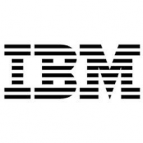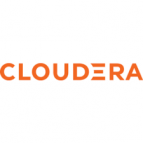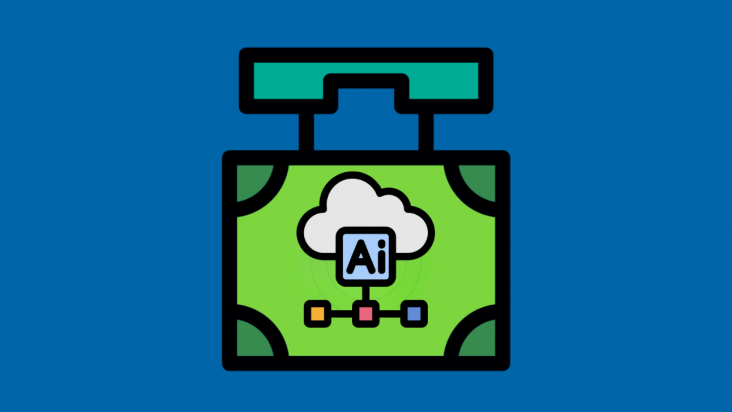![Best Selling RPGs: Ultimate List Ranked by Revenue [2024] Best Selling RPGs: Ultimate List Ranked by Revenue [2024]](https://data40.com/wp-content/uploads/2024/03/twitter-4.jpg)
In today’s digital age, data is king, and the ability to harness and analyze vast amounts of information can be the difference between success and failure for businesses. Data analytics companies play a crucial role in helping organizations make sense of this data deluge, providing powerful tools and insights that drive informed decision-making and fuel growth.
| Company | CEO | Established | Headquarters | Employees | Revenue |
|---|---|---|---|---|---|
 | Andy Jassy | July 5, 1994 | Seattle, Washington and Arlington, Virginia , U.S. | 1,525,000 (Dec. 2023) | $574.8 billion |
 | Sundar Pichai, Thomas Kurian (CEO of Google Cloud) | September 4, 1998 | Googleplex, Mountain View, California , U.S. | 139,995 (2021) | $19 billion |
 | Arvind Krishna | June 16, 1911 | 1 Orchard Road, Armonk, New York , United States | 282,200 (December 2023) | $61.860 billion |
 Oracle Oracle | Safra Catz | June 16, 1977 | Austin, Texas , United States | 164,000 (2023) | $49.95 billion |
 SAP SAP | Christian Klein | 1972 | Walldorf, Baden-Württemberg , Germany | 106,043 (2023) | €31.207 billion |
 Microsoft Microsoft | Satya Nadella | April 4, 1975 | One Microsoft Way, Redmond, Washington , U.S. | 221,000 (2023) | $211.9 billion |
 | Steve McMillan | 1979 | San Diego, California , U.S. | 7,000 (Dec 2022) | $1.79 billion |
 | Dev Ittycheria | 2007 | Paramount Plaza New York City, U.S. | 5,037 (January 2024) | $1.68 billion |
 | Mike Capone | 1993 | King of Prussia, Pennsylvania, U.S. | 2,000 | $750 million |
 | Kevin Rubin | March 1997 | Irvine, California, United States | 2,300 | $970 million |
 | Sridhar Ramaswamy | July 23, 2012 | Bozeman, Montana, U.S. | 5,884 | $2.067 billion |
 Databricks Databricks | Ali Ghodsi | 2013 | San Francisco, California , United States | 5,500 | $1.6 billion |
 | Enrique Lores | July 2, 1939 | Palo Alto, California , U.S. | 58,000 | $53.72 billion |
 | Charles Sansbury | June 27, 2008 | Santa Clara, California, U.S. | 3,000 | $869 million |
 | Gary Steele | October 2003 | San Francisco, California, U.S. | 8,000 | $3.65 billion |
Top 15 Big Data Companies Worldwide
Amazon Web Services (AWS)

- Established: 2006
- Employees: AWS, as part of Amazon, does not separately report employee numbers, but Amazon as a whole employs over 1.3 million people globally.
- Revenue: AWS generated around $62 billion in revenue in 2021.
AWS offers a broad set of global cloud-based products including compute, storage, databases, analytics, networking, mobile, developer tools, management tools, IoT, security, and enterprise applications. AWS helps businesses scale and grow by providing a wide array of tools such as Amazon S3 for storage, Amazon EC2 for compute power, and Amazon Redshift for data warehousing. These services enable companies to run big data analytics applications, process data at scale, and store data securely in the cloud.
Microsoft Azure

- Established: 2010
- Employees: Microsoft, the parent company of Azure, employs over 181,000 people worldwide.
- Revenue: Microsoft’s Intelligent Cloud segment, which includes Azure, reported a revenue of over $60 billion in FY 2021.
Azure is a cloud computing service for building, testing, deploying, and managing applications and services through Microsoft-managed data centers. Azure’s big data services, such as Azure HDInsight, a Hadoop-based service, and Azure Data Lake Analytics, support businesses in developing and deploying analytics solutions and applications. Azure provides scalable cloud infrastructure that enables businesses to process and analyze large volumes of data efficiently.
Google Cloud Platform (GCP)

- Established: 2008
- Employees: Google Cloud, part of Alphabet Inc., does not separately report its employee count, but Alphabet has over 150,000 employees.
- Revenue: Google Cloud reported a revenue of $19 billion in 2021.
GCP offers cloud computing services that run on the same infrastructure as Google’s end-user products, such as Google Search and YouTube. GCP’s big data products like BigQuery, a fully-managed data warehouse, and Cloud Dataflow, a stream and batch data processing service, help businesses analyze and interpret vast amounts of data. GCP enables companies to leverage Google’s advanced analytics and machine learning capabilities to gain insights and drive decision-making.
IBM

- Established: 1911
- Employees: IBM has approximately 282,100 employees globally.
- Revenue: IBM reported a revenue of $57.35 billion in 2021.
IBM offers a wide range of technology and consulting services, including predictive analytics, software development, and systems management. In big data, IBM’s Watson platform provides AI and machine learning capabilities to analyze structured and unstructured data. IBM helps businesses transform their operations through data insights, offering products like IBM Db2 database software and IBM Cloud Pak for Data, an integrated data and AI platform.
Oracle

- Established: 1977
- Employees: Oracle has around 132,000 employees worldwide.
- Revenue: Oracle’s total revenue for the fiscal year 2021 was $40.5 billion.
Oracle is a multinational computer technology corporation that specializes in developing and marketing database software and technology, cloud-engineered systems, and enterprise software products. In the realm of big data, Oracle offers Oracle Big Data Appliance, Oracle Big Data Cloud Service, and Oracle Analytics Cloud, providing comprehensive solutions for data management, analytics, and business intelligence. Oracle helps businesses to manage large volumes of data efficiently and gain actionable insights to inform decision-making.
SAP

- Established: 1972
- Employees: SAP employs over 105,000 people globally.
- Revenue: SAP reported a revenue of €27.84 billion (approximately $31 billion USD) in 2021.
SAP is a German multinational software corporation that makes enterprise software to manage business operations and customer relations. SAP’s big data solutions are centered around SAP HANA, an in-memory, column-oriented, relational database management system, and SAP Data Warehouse Cloud, which integrates data from across the enterprise. SAP enables businesses to process and analyze real-time data, facilitating more informed decision-making and strategic planning.
Cloudera

- Established: 2008
- Employees: Cloudera has approximately 3,000 employees.
- Revenue: Cloudera reported revenues of approximately $869 million in its fiscal year 2021.
Cloudera provides a software platform for data engineering, data warehousing, machine learning, and analytics that runs in the cloud or on-premises. Cloudera’s platform allows businesses to manage and analyze large amounts of data, offering products like Cloudera Data Platform (CDP) to secure and streamline data processing. Cloudera helps enterprises derive insights from complex data, driving efficiency and innovation.
HPE (Hewlett Packard Enterprise)

- Established: 2015 (spun off from Hewlett-Packard Company)
- Employees: HPE has about 60,000 employees worldwide.
- Revenue: HPE reported a revenue of $27.8 billion for the fiscal year 2021.
HPE provides enterprise IT solutions, including hardware, software, and services to manage and analyze big data. HPE’s offerings in big data include HPE Ezmeral, a container platform that helps businesses modernize their applications, and HPE GreenLake, which provides big data analytics and machine learning services as part of its cloud services. HPE enables companies to accelerate data-driven decisions and innovate faster with scalable and flexible IT solutions.
Databricks

- Established: 2013
- Employees: Databricks has over 2,000 employees.
- Revenue: While exact revenue figures are not publicly disclosed, Databricks was valued at $38 billion as of 2021.
Databricks offers a unified analytics platform powered by Apache Spark, facilitating collaboration between data scientists, engineers, and business analysts. The platform provides solutions for data engineering, collaborative data science, full-lifecycle machine learning, and business analytics through a unified interface. Databricks helps businesses harness big data’s power by simplifying data processing and analytics, fostering innovation and accelerating insights.
Snowflake

- Established: 2012
- Employees: Snowflake has over 2,000 employees.
- Revenue: Snowflake reported a revenue of $1.2 billion for the fiscal year ending January 31, 2022.
Snowflake offers a cloud-based data warehousing platform that allows corporate users to store and analyze data using cloud-based hardware and software. Snowflake’s unique architecture separates compute from storage, enabling businesses to scale up or down without downtime or performance degradation. Snowflake helps companies to make data-driven decisions by offering secure and easy access to any data with infinite scalability.
Teradata

- Established: 1979
- Employees: Teradata has about 8,535 employees.
- Revenue: Teradata reported a revenue of $1.8 billion in 2021.
Teradata Corporation is a provider of database and analytics-related software, products, and services. Teradata offers analytics solutions that include Teradata Vantage, a data platform that combines data lakes, data warehouses, analytics, and new data sources. Teradata enables businesses to analyze large volumes of data across multiple sources, driving better business outcomes through data-driven insights.
Splunk

- Established: 2003
- Employees: Splunk has over 6,000 employees.
- Revenue: Splunk reported revenues of over $2.2 billion in its fiscal year 2021.
Splunk offers software for searching, monitoring, and analyzing machine-generated big data, via a web-style interface. Splunk’s products, including Splunk Enterprise, for on-premises data collection and analysis, and Splunk Cloud, provide operational intelligence by making machine data accessible, usable, and valuable to everyone. Splunk helps businesses gain insights into their machine data to improve operational performance and security.
MongoDB

- Established: 2007
- Employees: MongoDB has over 2,600 employees.
- Revenue: MongoDB reported a revenue of $590.4 million for the fiscal year ending January 31, 2021.
MongoDB is a cross-platform document-oriented database program that uses JSON-like documents with optional schemas. MongoDB offers MongoDB Atlas, a global cloud database service for modern applications, providing a rich set of features for managing, querying, and analyzing large sets of data. MongoDB helps developers and businesses by providing a powerful and flexible database solution that scales from single-server deployments to large, complex multi-site architectures.
Qlik

- Established: 1993
- Employees: Qlik has over 2,000 employees.
- Revenue: Qlik’s annual revenue is estimated to be around $700 million.
Qlik provides an end-to-end platform for data integration and analytics. Qlik’s key offerings include Qlik Sense, a business intelligence and visual analytics platform, and Qlik Replicate for data integration. Qlik’s associative engine allows users to explore and analyze data connections across multiple sources, promoting data literacy and driving actionable insights.
Alteryx

- Established: 1997
- Employees: Alteryx has over 1,500 employees.
- Revenue: Alteryx reported a revenue of $495 million for the year 2020.
Alteryx provides an analytics platform that allows users to prepare, blend, and analyze data from a multitude of sources and carry out advanced analytics, including predictive, statistical, and spatial. Alteryx’s user-friendly interface enables data analysts and business users to streamline analytics processes, leading to faster insights and more informed business decisions.
These companies represent the forefront of innovation in the big data landscape, providing businesses with the tools and technologies they need to thrive in an increasingly data-driven world.
How are Big Data analytics companies Useful for Business?
Big data analytics companies specialize in collecting, analyzing, and interpreting large volumes of data from various sources. These companies employ advanced technologies such as artificial intelligence, machine learning, and predictive analytics to extract actionable insights from data sets, empowering businesses to:
- Gain Strategic Insights: Big data companies help businesses uncover patterns, trends, and correlations within their data, enabling strategic decision-making and forecasting.
- Enhance Customer Experiences: By analyzing customer data, businesses can better understand their preferences, behaviors, and needs, allowing for personalized marketing strategies and improved customer engagement.
- Optimize Operations: Big data solutions can streamline processes, identify inefficiencies, and optimize workflows, leading to cost savings and improved operational efficiency.
- Mitigate Risks: Through data analysis, companies can identify potential risks and threats, enabling proactive risk management strategies and enhancing cybersecurity measures.
- Drive Innovation: By leveraging insights from big data, businesses can identify new opportunities, develop innovative products and services, and stay ahead of competitors in dynamic markets.
Overall, big data processing companies serve as invaluable partners in helping businesses harness the power of data to drive growth, improve performance, and achieve strategic objectives.
How Can a Company Use Big Data?
Businesses across industries can leverage big data in myriad ways to gain a competitive edge and achieve their goals:
- Marketing and Sales: Analyze customer data to personalize marketing campaigns, target specific demographics, and optimize sales strategies for better conversion rates.
- Supply Chain Management: Utilize predictive analytics to forecast demand, optimize inventory levels, and improve supply chain efficiency.
- Finance and Risk Management: Employ data analytics to assess financial performance, detect fraudulent activities, and mitigate risks associated with investments and transactions.
- Healthcare: Leverage big data for clinical research, patient monitoring, disease surveillance, and personalized medicine, leading to improved healthcare outcomes.
- Manufacturing: Implement IoT sensors and data analytics to monitor equipment performance, predict maintenance needs, and optimize production processes for higher efficiency.
- E-commerce: Utilize customer data and predictive analytics to recommend products, personalize shopping experiences, and increase customer retention.
- Human Resources: Analyze employee data to identify talent gaps, optimize recruitment processes, and enhance employee satisfaction and retention.
By harnessing the power of big data and deploying advanced analytics solutions, companies can unlock valuable insights, drive innovation, and gain a competitive advantage in today’s data-driven landscape.
Big Data Companies Impact on the Industry
The advent of big data has ushered in a new era of industry innovation, transforming traditional practices and enabling more efficient, personalized, and predictive models. Big data companies, with their advanced analytics capabilities and vast computational resources, are at the forefront of this transformation, driving significant changes across various sectors. This article delves into the profound impact of big data on three key industries: healthcare, finance, and retail, highlighting how these sectors leverage big data to enhance operations, customer experience, and overall outcomes.
- In healthcare, big data is revolutionizing patient care, research, and administration. By analyzing vast datasets, healthcare providers can identify trends, predict outcomes, and personalize patient care. Big data analytics enable the integration of electronic health records (EHRs), genomic data, and wearable technology data, offering a comprehensive view of a patient’s health profile. One significant application is in predictive analytics, where algorithms can anticipate potential health issues before they become critical, enabling preventative measures.
- Finance sector has been one of the earliest adopters of big data analytics, using it to gain a competitive edge, manage risks, and comply with regulations. Financial institutions analyze customer data, market trends, and economic indicators to make informed decisions on investments, loans, and risk management.
Big data enables algorithmic trading, where automated systems execute trades at optimal times based on data analysis, leading to increased efficiency and profitability. Risk management has also been transformed through big data, allowing companies to model various financial scenarios and their potential impacts, thus mitigating risks more effectively. - In the retail sector, big data is reshaping the shopping experience, enabling retailers to understand and cater to consumer preferences like never before. Through the analysis of sales data, social media trends, and online shopping behaviors, retailers can offer personalized shopping experiences, targeted marketing, and optimal product placements.
Big Data Trends
As we look towards 2024, the landscape of big data analytics is poised for transformative shifts that promise to redefine how businesses harness data for development and competitive advantage. Drawing from my experience as a business analyst, I foresee several key trends that will shape the utilization of big data analytics companies in the coming years.
FAQ
Some common challenges include data integration, data quality assurance, privacy and security
Businesses can ensure compliance by implementing robust data governance policies, obtaining explicit consent from customers for data collection and processing, anonymizing personal information wherever possible, and regularly auditing data handling practices.
Key considerations include evaluating the company's expertise and experience in handling similar data challenges, assessing the scalability and flexibility of their solutions, considering the total cost of ownership, and examining customer reviews and testimonials for insights into their track record and customer satisfaction levels.







